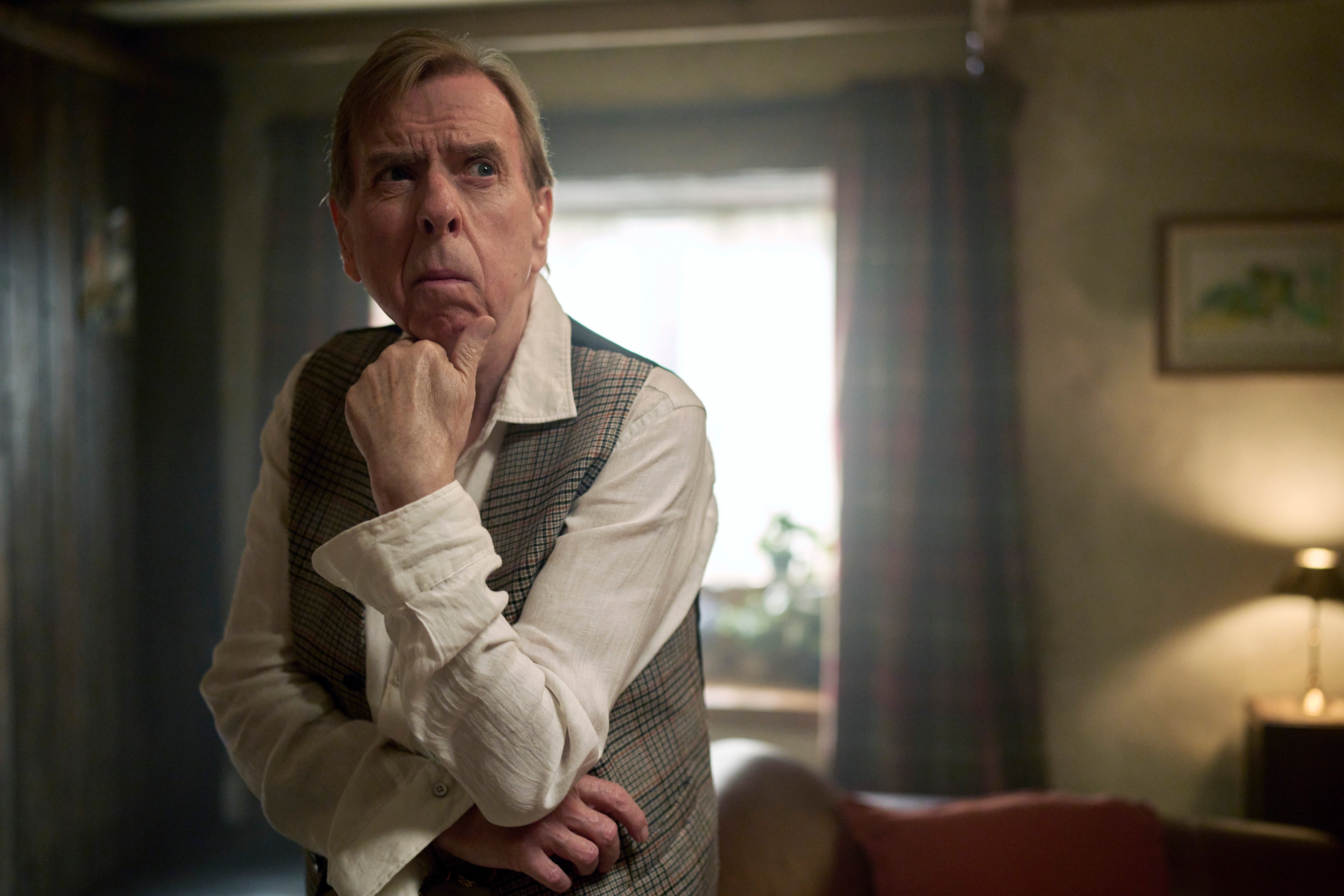ARTICLE AD BOX
Timothy Spall’s last meaty TV leading role was as the anguished academic Peter Farquhar in ITV’s accomplished but bleak 2023 true crime drama The Sixth Commandment. Spall – and his expansive range of magnificently hangdog facial expressions – offered up a performance of real heart and nuance. It was all the more affecting for the horrifying reality behind the story: a lonely man manipulated, tormented and, finally, murdered by one of his students. Clearly, it’s nice to mix things up. Because BBC One’s Death Valley is about as far away from The Sixth Commandment as it’s possible to wander.
Death Valley is not anguished, bleak or nuanced. The star of Death Valley’s show within a show is TV detective and national treasure Charles Caesar. He’s the kind of man who puts his hat on with a camply performative flourish and has an amusing bon mot to crown every case he cracks. He’s played by John Chapel (Spall), a foul-tempered, shaggy-bearded semi-recluse who lives in a small town in Wales and only opens his front door with extreme reluctance. One day, mildly hapless local copper DS Janie Mallowan (Gwyneth Keyworth) comes calling. She’s investigating the death (apparently by suicide but somehow you just know it isn’t going to be that simple) of a property developer who lives over the road. Might Chapel have seen anything?
Of course Chapel has seen something. In fact, he has a theory and, given that she’s not making much headway with the case, DS Mallowan is prepared to listen. And, surprisingly briskly, this fictional sleuth finds himself unofficially absorbed into the actual police force. The central premise we’re being asked to accept here is so absurd, it’s almost admirable in its audacity. It’s as if during Inspector Morse’s prime-time heyday, John Thaw had been drafted into the Met’s serious crimes unit and sent out to conduct door-to-door enquiries.
But back (briefly, because there isn’t all that much to say about it) to the case in question. It turns out that Carwyn Rees, the deceased property developer, has many enemies and more than a few secrets. He can’t, it’s deduced, have taken his own life. After all, he’s just booked a holiday. But he does have beef with a local “tree hugger”. And with a business partner. And with another local woman who finds him vulgar and has hatched an elaborate plan to dispatch him. His wife’s alibi doesn’t seem rock solid either. What a nest of vipers. Thank goodness for the presence of a local thesp with a flair for crime solving.
And so it goes on. The second episode involves foul play in a local hill walking society. Sadly, yet another tiny, idyllic corner of the UK turns out to have an endemic and apparently intractable problem with violent crime. And once again, there’s an inevitable but excruciating moment when Chapel and Mallowan join the group for an expedition and the suspects, witnesses and bystanders realise that a famous actor appears to be a part of the police operation. For some reason, no one thinks to sell this outlandish story to the tabloids.
Death Valley isn’t entirely without charm. Spall is watchable in anything and Keyworth is effervescent and funny. The performers make the most of what they’ve got and, accordingly, it goes down easy. Viewed generously, it has slight thematic overtones of the BBC’s 2024 David Mitchell vehicle Ludwig – although here, beyond DS Mallowan’s never particularly urgent career ambitions, there isn’t much of a narrative through-line to underpin the case-of-the-week format. Inevitably, Mallowan’s fizzy energy and guileless good nature bring something out of the grumpy Chapel and they become unlikely friends. He shaves his beard and starts talking to his neighbours. And there are a few hints that unresolved trauma surrounding his wife’s death might be the catalyst for his initial air of gloom. But in terms of character depth, that’s just about all she wrote.

Instead, it trots along gently; so slight as to be almost weightless. Every single cosy crime drama can essentially be traced back to Agatha Christie. They’re neat, self-contained and oddly flippant – and that’s very much the point of them. Like crossword puzzles, they satisfy a need for completeness, formula and resolution. The limitations of the genre are self-evident and their purpose is clear. No one will be watching for grit and grime.
But eventually, in the context of the crime drama canon, Death Valley is the equivalent of one of those Downton Abbey-style costume dramas that have all the aesthetic trappings of a Jane Austen or a George Eliot creation but none of the subtlety or literary heft. It would drift away on the faintest breeze. There are undoubtedly less pleasant ways to spend a Sunday evening in front of the television. But this is less cosy crime, more comatose crime. You’ll have forgotten all about Death Valley within 20 minutes of the end credits.









 English (US) ·
English (US) ·